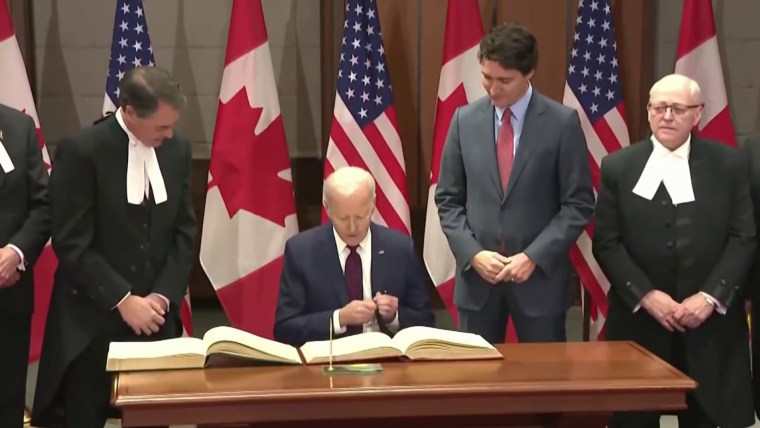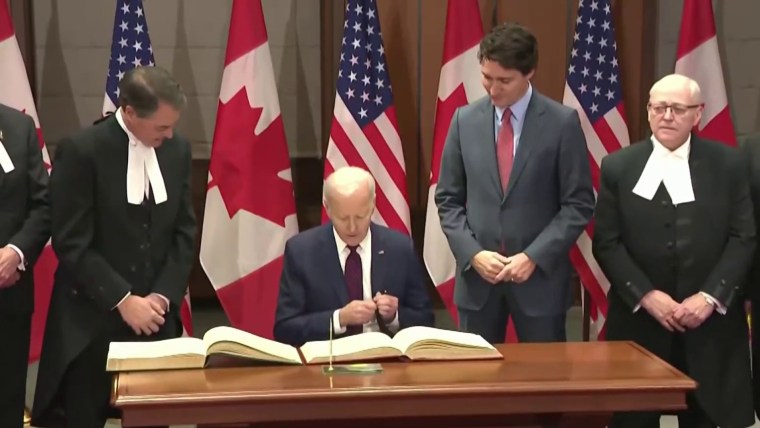WASHINGTON — Supreme Court justices on Monday questioned whether a federal law that criminalizes inducing illegal immigration is an unconstitutional infringement of free speech rights.
The justices heard the Biden administration’s appeal of a ruling that struck the law down, saying it violated free speech protections under the Constitution’s First Amendment.
Several members of the court queried whether the law was overly broad, meaning it could criminalize protected speech, although it was not clear whether there is a majority among the nine justices to strike it down.
The case concerns Helaman Hansen, who from 2012 to 2016 ran a program in which he charged as much as $10,000 for a purported pathway to citizenship. He claimed that undocumented immigrants could become citizens via an adult adoption service and persuaded 471 people to participate.
At trial in 2017 he was convicted of two counts of violating a federal law that prohibits encouraging or inducing unlawful immigration for private financial gain. He was also convicted of 12 counts of mail fraud and three counts of wire fraud, convictions that are not at issue in the Supreme Court case.
He was sentenced to 20 years in prison.
The San Francisco-based 9th U.S. Circuit Court of Appeals struck the law down in February 2022, saying it could lead to someone’s being convicted merely for saying, “I encourage you to reside in the United States.”
During oral arguments, some justices echoed those concerns, with Justice Brett Kavanaugh wondering whether someone could be convicted for helping an undocumented immigrant get food and shelter.
Along similar lines, Justice Sonia Sotomayor said the law is “criminalizing words related to immigration.”
Justice Elena Kagan likewise said a “world of communications” takes place every day involving undocumented immigrants, their families and professional advisers like lawyers that could be criminalized under the law.
Other justices seemed more sympathetic to the Justice Department, which argued there was no suggestion in Hansen’s specific case that his conviction was based on protected speech.
Justice Neil Gorsuch said it was “a little awkward” that there is no evidence Hansen’s free speech rights were violated, and he seemed to suggest that Hansen was not a sympathetic litigant.
“He is taking advantage of vulnerable people,” Gorsuch said.
The Supreme Court in 2020 heard a similar case but sidestepped a ruling on the law’s constitutionality.
Source: | This article originally belongs to Nbcnews.com










